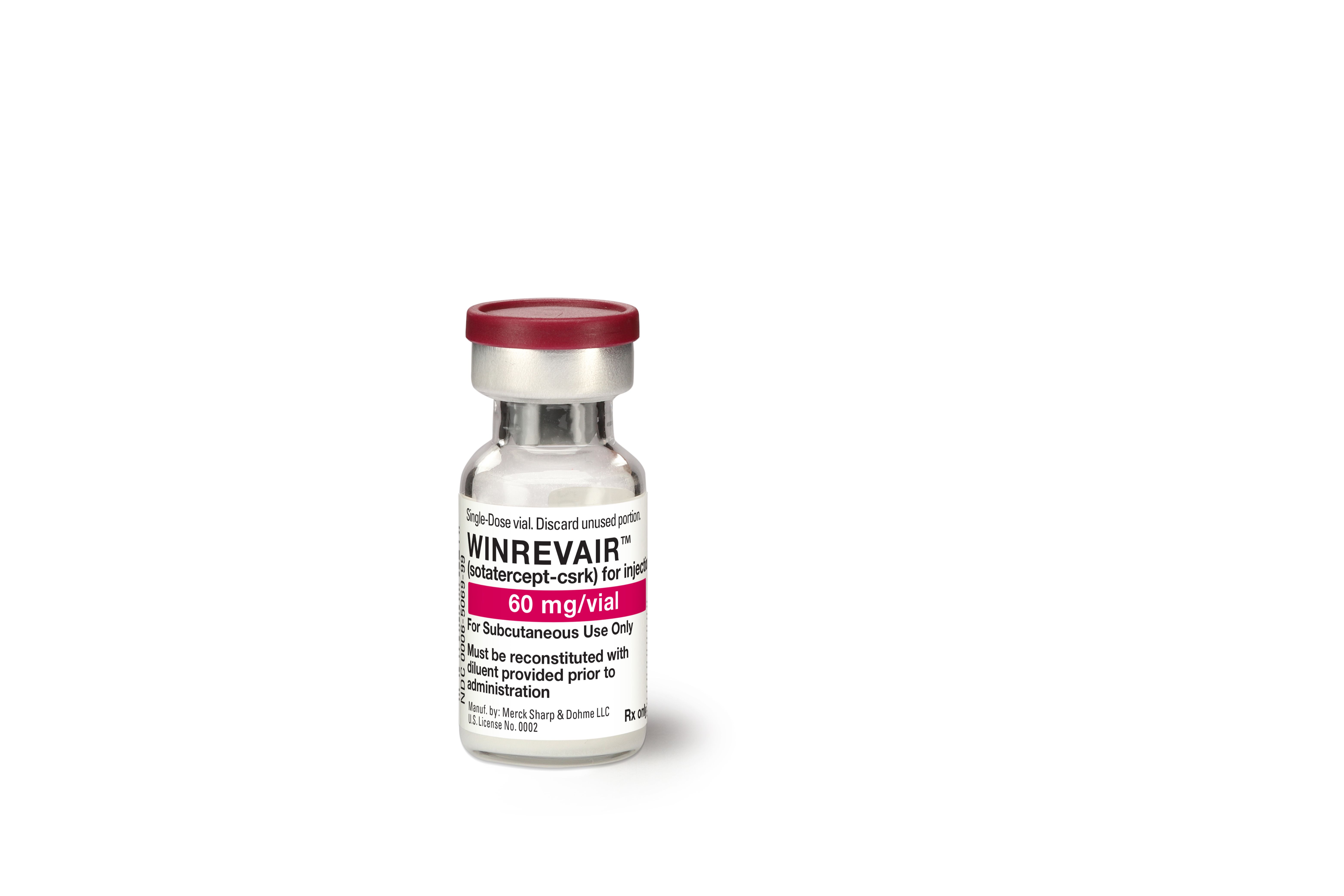- Center on Health Equity & Access
- Clinical
- Health Care Cost
- Health Care Delivery
- Insurance
- Policy
- Technology
- Value-Based Care
FDA Approves Sotatercept, First-in-Class Treatment for Adults With PAH
Adults with pulmonary arterial hypertension (PAH) have a new treatment available with the FDA approval of sotatercept (Winrevair; Merck), an activin signaling inhibitor biologic.
Sotatercept (Winrevair; Merck) has been approved by the FDA for the treatment of patients with pulmonary arterial hypertension (PAH), according to a press release from Merck.1 The approval comes after sotatercept was granted priority review in September 2023.2 The treatment was also granted FDA breakthrough therapy and orphan drug designations for the 45 mg and 60 mg doses.
PAH is a life-threatening disease that causes blood vessels in the lungs to narrow and increase strain on the heart, and can result in heart failure, reduced physical activity, and reduced life expectancy among other adverse effects. The 5-year mortality rate for patients with PAH is about 43%, with approximately 40,000 people in the US living with the condition.
Sotatercept | Image credit: Merck

Sotatercept is an activin signaling inhibitor that has been found to increase exercise capacity, improve WHO functional class, and reduce the risk of clinical worsening events in patients with PAH when added to background standard-of care therapy.1 The approval of sotatercept marks the first for an activin signaling inhibitor for PAH.
The approval is based on data from the multicenter, double-blind, phase 3 STELLAR trial, with results published in The New England Journal of Medicine in April of 2023.3 The trial assigned all participants 1:1 to receive either a sotatercept (n = 163) or placebo (n = 160) every 3 weeks in addition to background standard-of-care therapy for PAH. Change in 6-minute walking distance (6MWD) from baseline to week 24 was the primary end point of the study.
The researchers found a 34.4 m (95% CI, 33.0-35.5) median change in baseline for 6MWD by week 24 in the group that received sotatercept vs a 1.0 m (95% CI, –0.3 to 3.5) median change in 6MWD for the placebo group. The estimated difference in 6MWD after 24 weeks between the sotatercept and placebo groups was 40.8 m (95% CI, 27.5-54.1).
“New treatment options continue to be needed for patients with pulmonary arterial hypertension that support important clinical goals, including increasing exercise capacity and improving functional class. Sotatercept added to background therapy has the potential to become a new standard of care option for patients with pulmonary arterial hypertension” Aaron Waxman, MD, executive director of the Center for Pulmonary Heart Diseases at the Brigham and Women’s Hospital and investigator on the Phase 3 STELLAR study, said in a statement.1
The secondary end points, tested hierarchically, were multicomponent improvement, change in pulmonary vascular resistance, change in N-terminal pro-B-type natriuretic peptide level, improvement in World Health Organization functional class, time to death or clinical worsening, French risk score, and changes in the Pulmonary Arterial Hypertension-Symptoms and Impact (PAH-SYMPACT) Physical Impacts, Cardiopulmonary Symptoms, and Cognitive/Emotional Impacts domain scores. Except for the PAH-SYMPACT Cognitive/Emotional Impacts domain score, all secondary end points were significantly improved with sotatercept compared with placebo; they were assessed at week 24 except for time to death or clinical worsening.
Adverse effects of sotatercept include epistaxis, telangiectasia, dizziness, headache, rash, thrombocytopenia, increased hemoglobin, and increased blood pressure. These occurred more often in the sotatercept group compared with placebo. Hemoglobin and platelets should also be monitored by health care providers before a dose of sotatercept for the first 5 doses given these potential adverse effects.
“We are excited to see industry research leading to a better understanding of PAH and the development of a medicine in a novel treatment pathway that expands options for the patient community," Matt Granato, president and chief executive officer of Pulmonary Hypertension Association, said.1
The medication will be available for all patients starting in April, the company stated in the press release.
References
- FDA approves Merck's WINREVAIR (sotatercept-csrk), a first-in-class treatment for adults with pulmonary arterial hypertension (PAH, WHO group 1). News release. Merck; March 26, 2024. Accessed March 26, 2024.
- Merck receives priority revew from FDA for new biologics license application for sotatercept, an activin signaling inhibitor to treat adults with pulmonary arterial hypertension. News release. Merck. September 28, 2023. Accessed March 22, 2024. https://www.merck.com/news/merck-receives-priority-review-from-fda-for-new-biologics-license-application-for-sotatercept-an-activin-signaling-inhibitor-to-treat-adults-with-pulmonary-arterial-hypertension-pah/
- Hoeper MM, Badesch DB, Ghofrani A, et al. Phase 3 trial of sotatercept for treatment of pulmonary arterial hypertension. N Engl J Med. 2023;388(16):1478-1490. doi:10.1056/NEJMoa2213558
